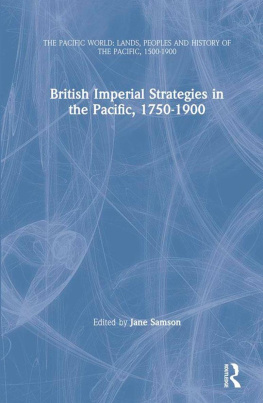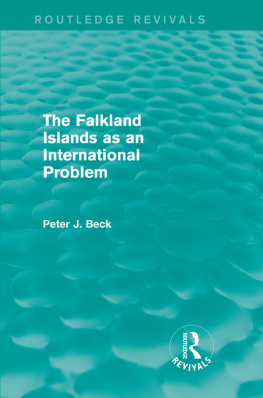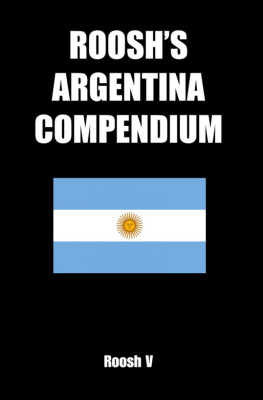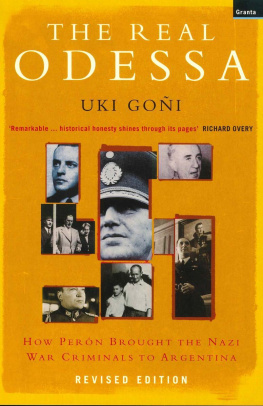The Anglo-Argentine Connection, 1900-1939
Dellplain Latin American Studies
The Anglo-Argentine Connection , 1900-1939
Roger Gravil
At the opening of the twentieth century, Britain's influence in Argentina was at its peak and resembled, in certain ways, its position in countries such as Australia and Canada. Yet, in the following generation, British preeminence was persistently threatened, and Argentina's prospects plunged into a seemingly irreversible decline. Why did the Anglo-Argentine connection, which appeared so mutually beneficial in 1900, become strained to the breaking point by 1939?
This book shows that Britain's efforts in Argentina were usually more pathetic than imperialistic, but that in periods of difficulty (1914 to 1918, and in the 1930s), British pressure unwittingly helped into power a political party that brought destruction, not merely to British interests, but also to the Argentine Republic's future promise.
Roger Gravil is a senior lecturer in history at the University of Lagos, Nigeria.
Dellplain Latin American Studies
PUBLISHED IN COOPERATION WITH THE DEPARTMENT OF GEOGRAPHY SYRACUSE UNIVERSITY
EDITOR
David J. Robinson
Syracuse University
EDITORIAL ADVISORY COMMITTEE
David A. Brading
University of Cambridge
William M. Denevan
University of Wisconsin
John H. Galloway
University of Toronto
John Lynch
University of London
Linda Newson
University of London
EDITORIAL ASSISTANT
Jane E. McGraw
The Anglo-Argentine Connection, 1900-1939
Roger Gravil
Dellplain Latin American Studies, No. 16
To John Lynch
in gratitude
First published 1985 by Westview Press, Inc.
Published 2019 by Routledge
52 Vanderbilt Avenue, New York, NY 10017
2 Park Square, Milton Park, Abingdon, Oxon OX14 4RN
Routledge is an imprint of the Taylor & Francis Group, an informa business
Copyright 1985 by the Department of Geography, Syracuse University
All rights reserved. No part of this book may be reprinted or reproduced or utilised in any form or by any electronic, mechanical, or other means, now known or hereafter invented, including photocopying and recording, or in any information storage or retrieval system, without permission in writing from the publishers.
Notice:
Product or corporate names may be trademarks or registered trademarks, and are used only for identification and explanation without intent to infringe.
Library of Congress Catalog Card Number: 84-52281
ISBN 13: 978-0-367-29010-8 (hbk)
"This marvellous country of Argentina is destined to become one of the great nations of the world."
Martin Hume
Predictions such as that above were common at the beginning of this century and reflected a general expectation that Argentina would outdistance all other Latin American republics in prosperity and influence and even attain the status of a world power. A great future for Argentina seemed assured. Yet, for the last generation the republic has endured a condition of such intractable crisis that confident predictions for the future have been replaced by puzzled investigations of the past. Among the many suggestions offered for Argentina's failure to realize this apparent potential, two have attained special prominence. The first is that Argentina's external relations and, above all, the Anglo-Argentine Connection involved a degree of exploitation which ultimately destroyed the country's prospects. Thus, Argentina is presented as a victim of foreign, and particularly British, informal imperialism. The second is that Argentina enjoyed remarkable prosperity and progress through external economic relations and that the last generation of acute difficulties is mainly attributable to the liquidation of the Anglo-Argentine Connection by Juan Domingo Pern. The object of this study is to make a small contribution to the literature of this important debate in which a British perspective may not be entirely inappropriate since
One of the ironies of Argentina's situation is that it bears a number of striking resemblances to the condition of its former imperial mentor, Great Britain. In both countries recent reformist labour regimes have proven ineffectual in the face of economic stagnation, inflation and real declines in the level of living. Also in both nations political conflict has sharply intensified without offering any short term prospects for meaningful change. The interesting difference between Britain and Argentina lies in the relative strength of the British superstructure. In Britain respect for law, tradition and the existing political structures is so strong that, despite policy disasters, growing social conflict remains channelled into wage and electoral disputes. In Argentina the superstructure has always been weak and is now more so than ever before. Social conflict has long since spilled over from the ballot box and the picket line into open bloodshed. The fundamental contradictions of the Argentine economy and society thus remain without resolution (Gilbert Merkx, "Argentina: Peronism and Power," Monthly Review 27 [January 1976], 50).
Unexpectedly, thus, an Englishman finds himself on not totally unfamiliar ground on the River Plate, and the aptness of the comparison was widely acknowledged during the Falklands War.
Since 1968 I have enjoyed the privilege of being a member of Professor John Lynch's seminar at the Institute of Latin American Studies, University of London, and have benefited greatly from the stimulus and friendship of that group. Professor R. A. Humphreys supervised with great care, patience, and understanding the doctoral thesis from which the book has been developed. Professor H. S. Ferns gave helpful advice in the earlier stages and kind encouragement later. Dr. Ezeguiel Gallo was good enough to read various drafts thereby reducing a foreigner's misconceptions about his country. Most of the book was researched and written while the author was employed as a lecturer in Britain, Ecuador, Zambia, and Nigeria; but a Parry Research Fellowship financed fulltime research in Britain for one year and a grant from the William Waldorf Astor Foundation financed fieldwork in Argentina. During that visit the following Argentines were very helpful: Dr. Miguel ngel Crcano; Professor Enrique Barba; Professor Ricardo Caillet Bois; Dr. Anbal Arcondo; Sr. Luis Perazzo; and Sr. Walter Villegas. My warmest thanks are due to all these people though, naturally, the responsibility for what is written here is mine. The conditions for writing were concededand enlivenedby Maria Teresa, Ana Maria, and Juan Carlos, mi familia querida .
Roger Gravil
In his introduction to W. A. Hirst, Argentina (London, 1910), xxvii.
1
The Anglo-Argentine Connection in 1900
The concept of the Anglo-Argentine Connection implies that a special relationship existed between Britain and Argentina. It arose from the conviction that Britain's relations with Argentina were different than those with most other countries. The difference was sometimes held to lie in sentimenta special concern in Britain dating back to the beginnings of Argentine nationhood, and a strong Anglophile feeling in Argentina based on respect for British traditions, institutions, and even ethics. Anglo-United States relations are often held to have possessed a special character also. Here, British colonial rule is sometimes said to have been imbued with an "imperial idea." The sentimental overtones of the Anglo-Argentine Connection were more often compared with the latter rather than the former.












